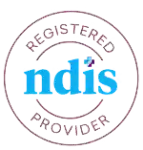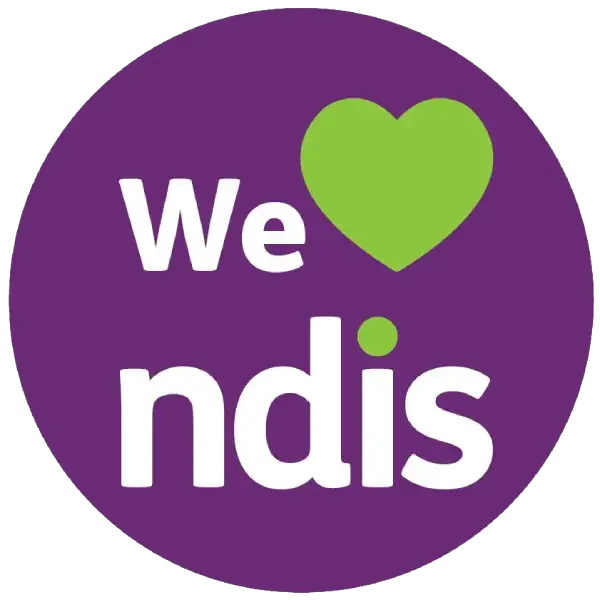Enquire about our SIL vacancies
The National Disability Insurance Scheme (NDIS) is one of Australia’s most significant reforms in the disability sector, providing financial support and resources to people with disabilities. As the NDIS grows, so does the need for registered providers who can deliver quality services and supports to NDIS participants. If you’re considering becoming an NDIS provider, one of the first things you’ll need to know is: How much does NDIS registration cost?
This comprehensive guide will delve into the details of NDIS registration, including the factors that influence the cost, and other key considerations to help you budget for the registration process. By the end, you’ll have a clearer picture of what to expect financially and why this investment is crucial for delivering services under the NDIS.
What Is NDIS Registration?
To become an NDIS provider, you must register with the NDIS Quality and Safeguards Commission, the government body that oversees the NDIS provider network. Registration is a formal process that involves submitting an application, assessing compliance with NDIS standards, and undergoing a formal audit. It is the key to legally providing services to NDIS participants and gaining access to government funding under the scheme.
NDIS registration assures participants and their families that the provider is trustworthy and meets the required standards of care, quality, and safety. Providers must follow the NDIS Practice Standards and adhere to the NDIS Code of Conduct to ensure that services are effective, ethical, and reliable.
NDIS Provider Registration Costs Explained
The NDIS provider registration cost can be broken down into several key components, each associated with different steps in the registration process. Understanding these costs will help you prepare financially and navigate the process smoothly.
1. Application Fee
The first cost you will incur is the application fee for submitting your registration to the NDIS Commission. This fee covers the administrative costs of processing your application and reviewing your business’s eligibility to provide services under the NDIS.
-
Small Providers: For businesses with fewer services or participants, the application fee usually ranges between $1,000 and $2,500.
-
Larger Providers: If your business is more established or you plan to provide a wide range of services, the application fee could be higher, often $2,500 to $5,000.
This is a one-time fee, and it is important to check the NDIS website or consult with the NDIS Commission for the most accurate and up-to-date fees.
2. Audit Costs
One of the most significant costs involved in NDIS provider registration is the audit. The NDIS requires that all providers undergo an audit to ensure that they meet the necessary practice standards and regulatory requirements. This audit assesses your organization’s ability to deliver safe and effective services, including ensuring you have proper processes in place to safeguard participants and provide high-quality care.
The cost of the audit varies based on the size and complexity of your business, as well as the scope of services you provide:
-
Small Providers: For small organizations offering limited services, the audit cost usually falls between $3,000 and $5,000.
-
Larger Providers: Organizations that offer more complex services, such as high-needs care, therapy, or clinical support, will pay higher audit fees, typically between $10,000 and $15,000, depending on the size and nature of their operations.
The audit process is usually conducted by an external auditor accredited by the NDIS Commission. It includes an initial certification audit as well as ongoing surveillance audits every three years to ensure continuous compliance with the NDIS Practice Standards.
3. Ongoing Compliance Costs
Once you are registered, you need to maintain compliance with NDIS standards to retain your provider status. This means staying up to date with changes in regulations, implementing new policies and procedures, and ensuring your staff receive ongoing training and development. These compliance activities help your business avoid potential penalties or loss of registration.
-
Internal Audits & Reviews: You will need to carry out regular internal audits and reviews of your operations, which can involve costs for hiring or training staff to perform these audits.
-
Ongoing Staff Training & Professional Development: You will also need to ensure your staff meet the qualifications required by the NDIS, including undergoing regular professional development training. The costs for staff training can vary widely but typically range between $1,000 and $5,000 annually depending on the size of your team.
For many providers, this ongoing compliance will involve hiring or consulting with experts in compliance and quality management. These additional costs can be significant, so budgeting for these expenses is essential for maintaining your NDIS provider registration status.
4. Insurance Costs
As part of the NDIS registration process, providers must have appropriate insurance coverage. Insurance is crucial to protect your business from liabilities that may arise when providing services to vulnerable people. The main types of insurance required for NDIS providers include:
-
Public Liability Insurance: Covers your business against claims of injury or damage caused by your services.
-
Professional Indemnity Insurance: Protects your business if your advice or services result in harm or legal claims.
-
Workers Compensation Insurance: Required for businesses with employees, this covers injuries that occur in the workplace.
Insurance premiums vary based on the size of your business, the type of services you provide, and the number of employees you have. Depending on your specific needs, insurance costs could range from $1,000 to $10,000 annually.
5. Specialized Services and Costs for Complex Providers
If your business offers specialized or high-risk services, such as clinical care, therapy, or other complex support services, you may face additional registration and compliance costs. These services often require higher levels of training, more comprehensive audits, and more detailed reporting to meet the NDIS’s stringent standards.
For example:
-
Clinical and Therapy Services: Providers offering therapy services, such as physiotherapy, occupational therapy, or speech pathology, must ensure their staff are adequately trained and certified, which can increase costs.
-
High-Needs or Complex Care Services: Providers delivering complex care or working with high-needs participants must meet even more rigorous standards, which may result in higher registration and audit costs.
The cost for these specialized services can vary, but generally, you can expect to pay 5-10% more in registration and ongoing compliance costs due to the increased complexity.
6. Re-Registration Costs
Once your initial registration is approved, you will need to renew your registration every three years. The re-registration process involves a similar application and audit process, which can incur additional fees.
-
Re-Registration Audit Fees: These typically range between $5,000 and $10,000 for most providers.
-
Ongoing Costs: You will also need to pay for any updated insurance, staff recertification, and potential upgrades to your facilities or systems to maintain compliance.
The re-registration process is crucial for continuing to provide services to NDIS participants. It ensures that your business stays aligned with changing regulations and continues to meet the required standards for NDIS delivery.
NDIS Registration Cost vs. Benefits
While the initial costs of becoming an NDIS-registered provider may seem high, the long-term benefits often outweigh the financial investment. Here’s why:
1. Access to a Growing Market
The NDIS is one of the largest social welfare programs in the world, and its market continues to grow. By becoming a registered provider, you gain access to a substantial client base that will continue to expand as the NDIS evolves.
2. Credibility and Trust
Being an NDIS-registered provider gives your business credibility. It assures participants and their families that you adhere to strict quality standards and that the NDIS Commission has vetted you. This can help build trust, attract clients, and differentiate your services from non-registered providers.
3. Government Funding
As a registered provider, you will be eligible to receive government funding for your services. This funding can provide a stable revenue stream and allow you to focus on delivering high-quality care, without having to rely on private payers.
4. Long-Term Growth
NDIS registration allows you to scale your business as the demand for services increases. By being part of a growing and regulated sector, your business is positioned for long-term success and growth.
Conclusion
The NDIS provider registration cost is a multifaceted investment that covers application fees, audit costs, ongoing compliance, insurance, and more. The initial costs can range from $1,000 to $15,000 or more, depending on the size and scope of your business. While the upfront costs may seem daunting, the benefits of becoming an NDIS-registered provider — including access to a growing market, government funding, and increased credibility — often far outweigh the expenses.
By understanding the costs involved and budgeting accordingly, you can ensure a smooth registration process and position your business for success within the NDIS framework. Be sure to stay informed about any changes in the regulatory landscape and continually invest in the quality of your services to maintain compliance and continue delivering excellent care to NDIS participants.
Recent Posts
Top Rated Services
Get A Quick Quote Now
Enquire about our SDA vacancies
Enquiry Now
Consult Our Care Experts
Grab Your Free Consultation Today!
Or give us a call to speak to someone now
1300 668 655









